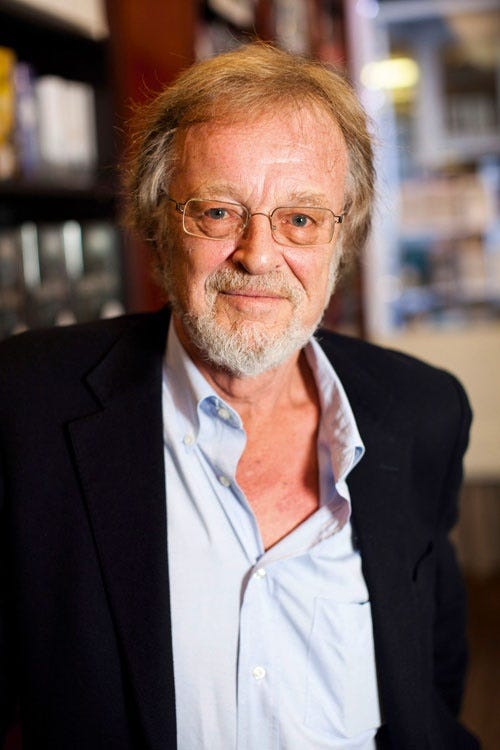Sharpe's Return: Bernard Cornwell Interview
Our editor managed to gain an audience with the master novelist to chat Sharpe, Wellington, Napoleon and more.
By Oliver Webb-Carter
One crisp morning towards the end of 2021, I found myself walking with some trepidation through Covent Garden. I had a meeting with the author whose work I had been reading since the age of 10, and without whom it is unlikely I would be doing what I’m doing now. As I arrived at the agreed location, a few minutes early, I noticed a gentleman seated outside and enjoying a small cigar. It was him. Keen to avoid eye contact and thereby an awkward start to what was to be a momentous encounter, I dived into the nearest coffee shop.
Bernard Cornwell, now 77, published Sharpe’s Eagle in 1981, and it was an immediate success. Centred around its grumpy hero, Richard Sharpe, Eagle was the first of 22 novels and three short stories (more about that later). The latest, Sharpe’s Assassin, came out just before Christmas. Cornwell has sold more than 30 million books, and Sharpe has filleted his way through countless Frenchmen, seduced many a beauty, but with the new novel has reached peace and contentment in the arms of Lucille, his French third wife. That is until Boney appears, humbugs Wellington, and Sharpe is called for one more battle at Waterloo. In Assassin, with the battle won, he is tasked with ensuring Paris is free from threat before the victorious allies arrive.
Through Sharpe I was introduced to a love of history which, as a homesick schoolboy, opened up a whole new world. Whilst reading the opening lines of Assassin, I immediately felt comfortable, as if getting into a soft feather bed. Did it feel the same for the author? “The moment I started writing it I felt comfortable, so I know what you mean. It was very nice being back with Sharpe and Harper.” I was conscious that in my interview, I didn’t want to ask questions that have been asked many times before, and can easily be found in newspapers, YouTube and elsewhere, but I had to get the big one out the way: is Sharpe’s Assassin a one off? After all, there is no ‘Sharpe & Harper will march again’ at the end of his entertainingly informative Historical Note. “Probably not, but I never know. I always wanted to write a few more Sharpes so I think there will be another one or two. By that [Sharpe & Harper marching again] I meant there’s nothing in their future but there’s something in their past. I suppose I could have written Sharpe and Harper might retrace their steps…”
We are meeting in the large first floor sitting room of a hotel, with plenty of people milling around. Cornwell is relaxed on a sofa, and I’m seated to his right in an armchair. When I arrived he was polite, friendly and softly spoken. As I checked my BlackBerry to ensure we’re being recorded, all that was running through my head was, ‘Do not bugger this up.’ This was as much directed at my mobile as myself.
In the new novel, there’s a darkness to Sharpe, more so than in his previous outings. Indeed, he commits a murder that’s more brutal and unforgiving than I had noticed in the earlier books. Does he have Post-Traumatic Stress Disorder (PTSD)? “I think so, yes, I always thought he had a touch of PTSD. I can’t see how you wouldn’t. You had all these guys who did literally fight for the best part of 15 years, through some of the most gory, horrible battles and I just can’t believe they didn’t have nightmares about it. Picton, undoubtedly suffered from it, and he had nightmares before he left England to go to Waterloo. He jumped into a grave in Wales to see how it felt. Poor Picton. So I’m sure Sharpe suffered from PTSD.” The murder is not the sign of a healthy man. “Whoever said Sharpe was healthy? I remember a long time ago someone telling me, he was American, he said, ‘I read Sharpe’s Eagle and Sharpe just murdered those guys and I knew he was a different hero, so I stuck with him,’ so I do give Sharpe the odd murder.”
Keep reading with a 7-day free trial
Subscribe to Aspects’s Substack to keep reading this post and get 7 days of free access to the full post archives.





